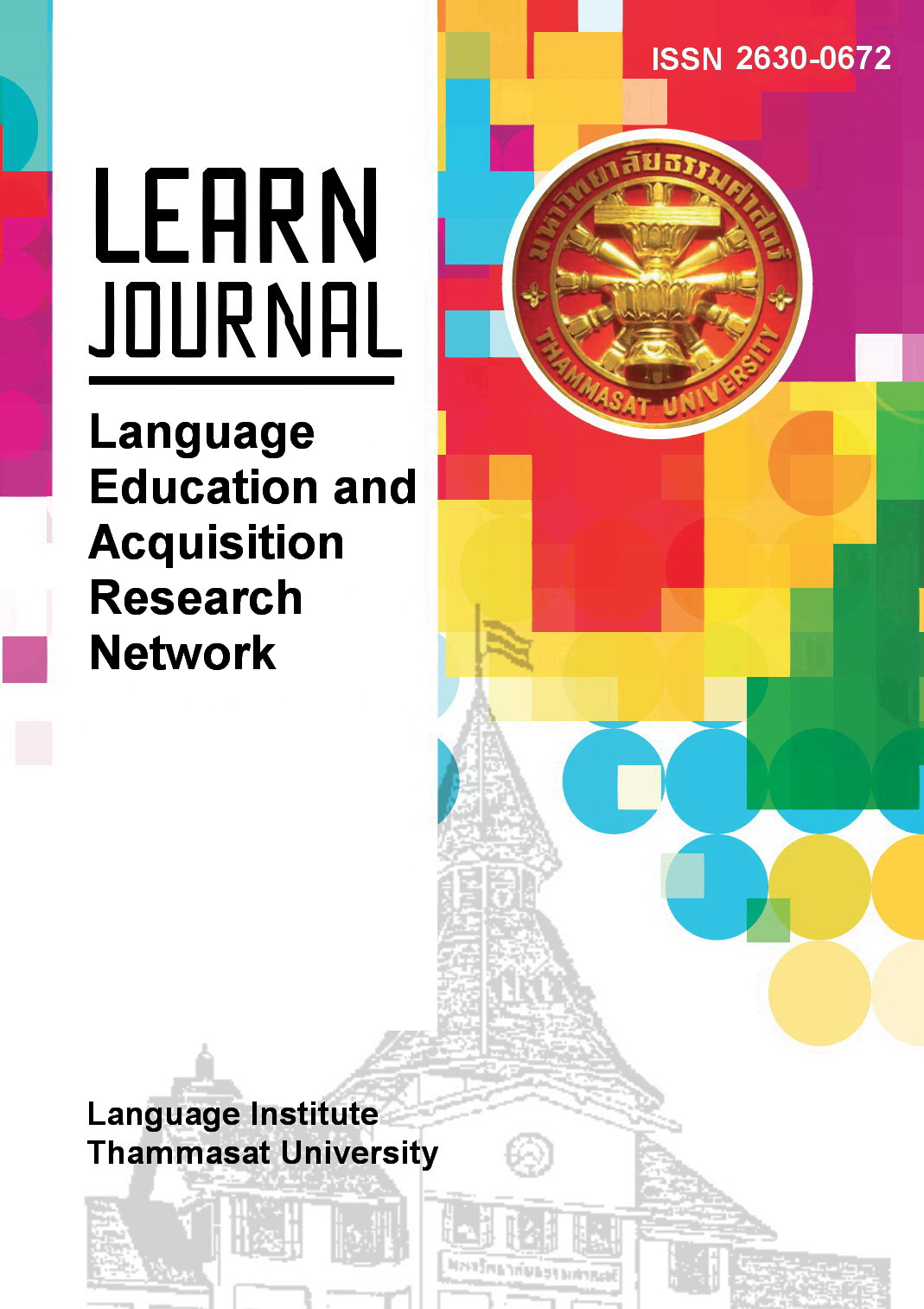Language Teacher Education for Global Englishes: A Practical Resource Book By Ali Fuad Selvi and Bedrettin Yazan
Main Article Content
Abstract
The globalization of English has sparked disputes about how to teach English and whether language teacher education should equip pre- and in-service teachers to teach English from a global Englishes (GE) viewpoint. When English is used as a global language, it is critical to recognize the importance of teacher education in ensuring that a global Englishes (GE)-informed curriculum and pedagogy is employed. Emerged from post-colonial perspectives, and the privileging of essentialized and idealized ways of knowing, doing and being (while marginalizing local forms of knowing, doing and being), the term, GE, is regarded as a paradigm that revisits the relationship between three earlier terms, World Englishes (WE), English as an international language (EIL), and English as a lingua franca (ELF) (Widodo et al., 2020). However, this term “GE” is not universally accepted. Key WE scholars have contended that GE scholarship misinterprets the nature and scope of Kachru’s work. They argue that Kachru (1985)’s Three Circles Model of World Englishes was intended to highlight the dynamic nature of emergent variation, and the legitimacy of pluricentricity. Without surprise, Sadeghpour & D’Angelo (2022) questions GE, whether it is a complementary or a competing paradigm.
Article Details
References
Chen, Z., Chen, X., & Fang, F. (2021). Global Englishes and teacher education: Present cases and future directions. RELC Journal. https://doi.org/10.1177/00336882211044872
Fang, F., & Ren, W. (2018). Developing students’ awareness of Global Englishes. ELT Journal, 72(4), 384–394. https://doi.org/10.1093/elt/ccy012
Fang, F. & Widodo, H. P. (Eds) (2019). Critical perspectives on Global Englishes in Asia: Language policy, curriculum, pedagogy and assessment. Multilingual Matters.
Jindapitak, N., Teo, A., & Savski, K. (2022). Bringing Global Englishes to the ELT classroom: English language learners’ reflections. Asian Englishes. https://doi.org/10.1080/13488678.2022.2033910
Kachru, B.B. (1985). Standards, codification and sociolinguistic realism: The English language in the outer circle. In R. Quirk & H.G. Widdowson (Eds), English in the world: Teaching and learning the language and literatures (pp. 11–30). Cambridge University Press.
Sadeghpour, M., & D’Angelo, J. (2022). World Englishes and ‘Global Englishes’: Competing or complementary paradigms? Asian Englishes, 24(2), 211-221. https://doi.org/10.1080/13488678.2022.2076368
Sifakis, N. C., & Bayyurt, Y. (2018). ELF-aware teacher learning and development. In J. Jenkins, W. Baker, & M. Dewey (eds.), Handbook of English as a lingua franca (pp. 456–467). Routledge. https://doi.org/10.4324/9781315717173–37
Widodo, H. P., Fang, F., & Elyas, T. (2020). The construction of language teacher professional identity in the Global Englishes territory: “We are legitimate language teachers.” Asian Englishes, 22(3), 1–8. https://doi.org/10.1080/13488678.2020.1732683


